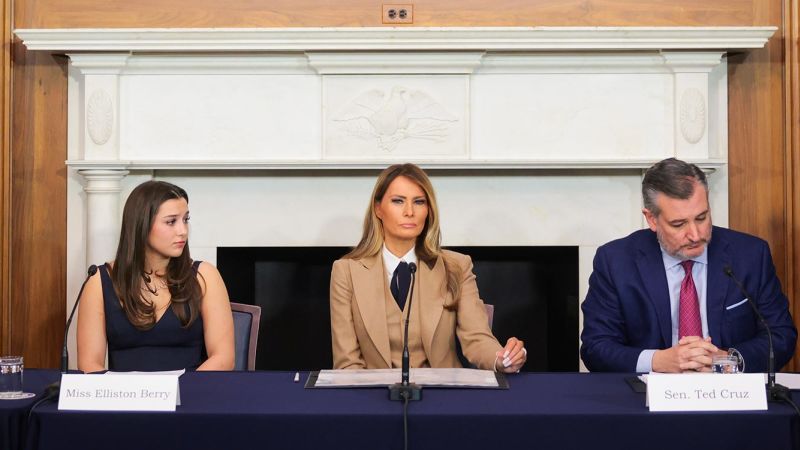CNN
—
The US House of Representatives on Monday passed the “Take It Down” Act, which aims to protect Americans from deepfake and revenge pornography.
The bill, which boosts protections for victims of non-consensual sharing of sexual images, including content generated by artificial intelligence known as deepfake porn, will go to President Donald Trump’s desk for signature.
First lady Melania Trump has thrown her support behind the effort, lobbying House lawmakers last month to pass the legislation, and the president is expected to sign the measure.
“It’s heartbreaking to witness young teens, especially girls, grappling with the overwhelming challenges posed by malicious online content, like deepfakes,” the first lady said at an event on Capitol Hill in March. “This toxic environment can be severely damaging. … Every young person deserves a safe online space to express themselves freely, without the looming threat of exploitation or harm.”
Targets of AI-generated, non-consensual pornographic images have ranged from prominent women such as Taylor Swift and Rep. Alexandria Ocasio-Cortez to high school girls.
The Senate passed the bill in February after it previously garnered bipartisan support during the last session of Congress.
Republican Sen. Ted Cruz of Texas introduced the bill, and a bipartisan group of lawmakers, including Democratic Sen. Amy Klobuchar of Minnesota and Rep. Madeleine Dean of Pennsylvania, have supported the effort.
According to Cruz’s office, the bill “would criminalize the publication of non-consensual intimate imagery (NCII), including AI-generated NCII (or ‘deepfake pornography’), and require social media and similar websites to have in place procedures to remove such content upon notification from a victim.”
Melania Trump’s calls to lawmakers last month to pass the legislation marked her first public remarks of her husband’s second term and a renewed commitment to her first-term “Be Best platform,” which included a focus on online safety.
“In an era where digital interactions are integral to daily life, it is imperative that we safeguard children from mean-spirited and hurtful online behavior,” she said at a roundtable with lawmakers, survivors and advocates against revenge porn.

